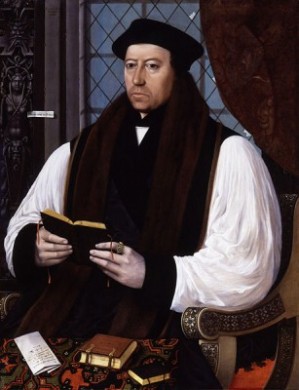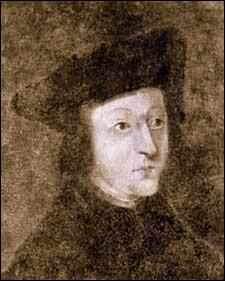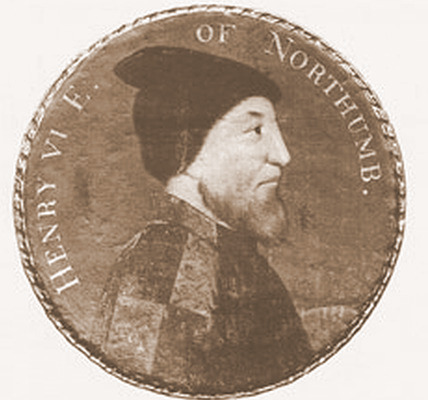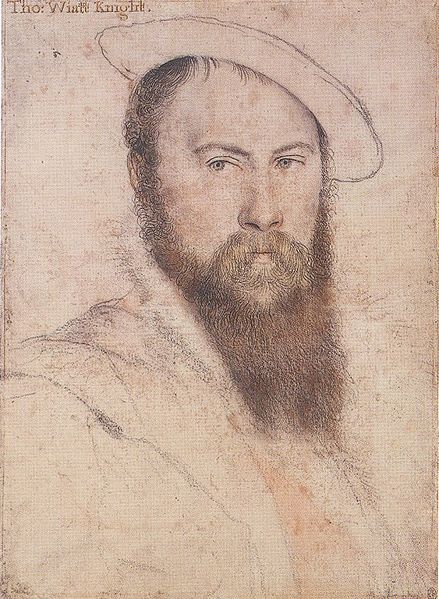
Today is the anniversary of one of the most notorious judicial murders in English history, the execution of Queen Anne Boleyn. The farcical trial and subsequent sentences saw five innocent men fall with her, in a bloodbath engineered by King Henry VIII so he could put his wife away without inconvenience.
By May of 1536 Anne Boleyn and her brother, George, Lord Rochford, their friends Sir Henry Norris and Sir Francis Weston, Henry VIII’s groom William Brereton and court musician Mark Smeaton were beyond help. The guilty verdict was a forgone conclusion. Yet their alleged guilt was not blindly accepted by the public or their peers. To try and intervene on their behalf would have been futile, but the verdict was ‘accepted’ insofar as anything one must accept under the law. I die under the law George Boleyn said in his execution speech. But in some of the contemporary accounts of Anne Boleyn we see men convinced of her innocence, men who were her friends and her enemies. We cannot speculate they knew that these letters, dispatches and poems would be scrutinised for five centuries, but what they left behind was an invaluable testament to the fact that Anne Boleyn and those five men were framed by one of the most murderous kings in English history. It is a small comfort that King Henry VIII could not have envisioned that his legacy will forever be stained with the blood of those people whose names he tried to blacken.
Thomas Cranmer

On on the 3rd of May 1536, the Archbishop of Cantebury, Thomas Cranmer, wrote a letter to Henry VIII expressing his shock at the charges brought against Anne Boleyn.
And if it be true, that is openly reported of the queen’s grace, if men had a right estimation of things, they should not esteem any part of your grace’s honour to be touched thereby, but her honour only to be clearly disparaged. And I am in such a perplexity, that my mind is clean amazed: for I never had better opinion in woman, than I had in her; which maketh me to think, that she should not be culpable. And again, I think your highness would not have gone so far, except she had surely been culpable. Now I think that your grace best knoweth, that, next unto your grace, I was most bound unto her of all creatures living. Wherefore I most humbly beseech your grace to suffer me in that, which both God’s law, nature, and also her kindness bindeth me unto; that is, that I may with your grace’s favour wish and pray for her, that she may declare herself inculpable and innocent. 1
It is true that Cranmer did not directly challenge the king, realistically he could not without serious threat to himself. But he carefully worded his disbelief at the charges. Perhaps he was clinging to the hope that Henry VIII would come to his senses and see a better way out of his marriage, one that did not include slander and murder.
In the end Thomas Cranmer was instrumental in the annulments of Henry VIII’s first and second marriages. On the 23rd May 1533 Cranmer pronounced that Henry’s marriage with Katherine of Aragon was against the law of God. Just a little under 3 years later, on the 16th of May 1536, he pronounced the marriage of Henry VIII and Anne Boleyn null and void. They would both come back to haunt him. Anne’s death affected Cranmer deeply, and his involvement in the annulment of Henry’s marriage to Katherine of Aragon would incur the wrath of her daughter, Queen Mary Tudor. Mary would burn Thomas Cranmer at the stake.

Eustace Chapuys
Those who still hold the image of a gleeful Eustace Chapuys dancing on Anne Boleyn’s grave may be surprised that the Spanish ambassador was an early advocate of Anne Boleyn’s innocence. Chapuys was not only shrewd, intelligent and highly perceptive, he was also not a subject of Henry VIII and did not have to fear persecution.
Chapuys dispatches have been used extensively over the years by historians, but as the majority of cases cite the negative observations he made of Anne Boleyn, we assume he was her bitter enemy. That they were natural enemies is true, Chapuys was brought to the English court to his to represent Katherine of Aragon and to argue against the annulment. That he truly hated Anne is slightly debatable. But Chapuys was also concerned for the welfare of Princess Mary, whose position became increasingly unbearable during Henry’s pursuit of an annulment. To Anne, both Katherine and Mary were an obstacle to her position, and her happiness. It would have been natural for Chapuys and Anne to dislike each other. But that he exalted in her death is entirely false.
We may smile at Chapuys more sarcastic observations, but when he wrote to Nicolas Granvelle on the day of Anne Boleyn’s execution that You never saw prince nor man who made greater show of his (cuckold’s) horns or bore them more pleasantly. I leave you to imagine the cause 2 it is clear he was disbelieving of the charges. His account of the trial is even more illuminating. To Charles V on the 19th of May, 1536, Chapuys wrote:
“only the last-named [Mark Smeaton] confessed having slept with the concubine on three different occasions; all the others were sentenced on mere presumption or on very slight grounds, without legal proof or valid confession…”
“Neither the concubine nor her brother were taken to Westminster as the other criminals had been; they were tried within the Tower, and yet the trial was far from being kept secret, for upwards of 2,000 people were present…”
“the brother, as I say, was charged with having had connexion with her; no proof of his guilt was produced except that of his having once passed many hours in her company, and other little follies. He answered so well that many who were present at the trial, and heard what he said, had no difficulty in waging two to one that he would be acquitted, the more so that no witnesses were called to give evidence against him or against her, as is customary in such cases, when the accused denies the charge brought against him…”
“although the generality of people here are glad of the execution of the said concubine, still a few find fault and grumble at the manner in which the proceedings against her have been conducted, and the condemnation of her and the rest, which is generally thought strange enough. People speak variously about the King, and certainly the slander will not cease when they hear of what passed and is passing between him and his new mistress, Jane Seymour. Already it sounds badly in the ears of the public that the King, after such ignominy and discredit as the concubine has brought on his head, should manifest more joy and pleasure now, since her arrest and trial, than he has ever done on other occasions… ” 3
Chapuys has very clearly stated that the men were tried without valid proof and insinuates that Anne and George’s public trials were designed to humiliate. He dismisses the evidence against George Boleyn as “follies” and he gives us a vivid account of public feeling towards the trials. As we can see, the public were not happy to accept the lurid charges against Anne Boleyn and her alleged lovers. Anne’s death was still on his mind almost two months later. In a letter to Charles V on the 8th of July, 1536, Chapuys wrote:
On such grounds did the archbishop of Canterbury (Cranmer) pronounce the sentence of divorce one or two days before the execution of the concubine; of which sentence, however, there was no need at all, as you are aware, since the executioner’s sword and her own death were virtually to separate and divorce man and wife. But if such was their intention it strikes me that it would have been a far more decent and honest excuse to allege that she had been married to another man still alive. However that may be, it pleased God that by making such a statement a still greater abomination should become manifest, —one for which the King cannot find a possible excuse, since he himself cannot plead ignorance neque juris neque facté. May God permit that this may be his last folly.4
It is plain that Chapuys was disturbed by the death of an innocent woman. He states the execution was used to facilitate divorce, that Henry had not acted decently or honourably and that there could have been a better way to annul the marriage. It is chilling to see Chapuys write may God permit that this may be his last folly. Chapuys would witness the death of another of Henry’s wives only five years later.
Henry Percy

We are entering pure speculative territory with Henry Percy, Anne Boleyn’s former suitor, when we discuss the letter he wrote to Thomas Cromwell on the 13th May of 1536. Henry VIII was eager to not only execute his wife, but to legally dissolve the marriage as well. But Henry Percy was refusing to co-operate.
Mr Secretary, This shall be to signifie unto you that I perceive by Sir Raynold Carnaby, that there is supposed a precontract between the queen and me; wherupon I was not only heretofore examined upon my oath before the Archbishopps of Canterbury and York, but also received the blessed sacrament upon the same before the Duke of Norfolk, and other the king’s highnes’ council learned in the spiritual law; assuring you Mr Secretary, by the said oath, and blessed body which affore I received, and hereafter intend to receive, that the same may be to my damnation, if ever there were any contracte or promise of marriage between her and me. At Newington Green, the xiijth day of Maye, in the 28th year of the reigne of our soveraigne lord King Henry the VIIIth. Your assured, Northumberland. 5
Why did Percy so vehemently deny the precontract, to his “damnation”? It is obvious of course, that Percy was worried he would be implicated, seven men had been arrested. That Anne and Percy were betrothed is highly likely, they certainly had a romantic relationship before Anne was involved with the king. This was a dangerous time for Percy. But Chapuys also made an observation in January of 1535, that the Earl of Northumberland is no longer such a friend of this king and of his ministers as he used to be…The Earl went on charging the King’s mistress with arrogance and wickedness 6. Perhaps Percy was unwilling to assist in the murder of his former sweetheart, perhaps he was tired of both Henry VIII and Anne Boleyn. After all his wife Mary Talbot had attempted to use the precontract story to secure her own divorce. Or perhaps his honour would not allow him to assist in the murder of six innocent people for a king he did not respect. Percy was very ill at this point in his life, and after the ordeal of being forced to sit in judgement on Anne, he had to be taken from court. He would die only a little while after Anne Boleyn.
Thomas Wyatt

Sir Thomas Wyatt was arrested along with six other men in the fall of Anne Boleyn, but Wyatt escaped with his life. His greatest legacy is his poetry, and he is famous for loving the tragic Queen Anne Boleyn from afar. One of the most well-known poems he left us was V. Innocentia Veritas Viat Fides Circumdederunt me inimici mei or what many Tudor enthusiasts refer to as These bloody days have broken my heart. This poignant line has been used endlessly by historians and authors alike. In another favourite line, circa Regna tonat, which translates to “around the throne the thunder rolls”, Wyatt paints a vivid portrait of the perils of court life. The fall is grievous from aloft he warns us. In the last paragraph of the poem Wyatt makes it clear that there was no justice in the reign of King Henry VIII.
There were many travesties of justice in the bloody reign of King Henry VIII. Today we remember the deaths of a mere handful of his victims – Queen Anne Boleyn, George Boleyn Lord Rochford, Sir Henry Norris, Sir Francis Weston, Mark Smeaton and William Brereton.
V. Innocentia Veritas Viat Fides Circumdederunt me inimici mei
by Sir Thomas Wyatt, the Elder
Who list his wealth and ease retain,
Himself let him unknown contain.
Press not too fast in at that gate
Where the return stands by disdain,
For sure, circa Regna tonat.
The high mountains are blasted oft
When the low valley is mild and soft.
Fortune with Health stands at debate.
The fall is grievous from aloft.
And sure, circa Regna tonat.
These bloody days have broken my heart.
My lust, my youth did them depart,
And blind desire of estate.
Who hastes to climb seeks to revert.
Of truth, circa Regna tonat.
The bell tower showed me such sight
That in my head sticks day and night.
There did I learn out of a grate,
For all favour, glory, or might,
That yet circa Regna tonat.
By proof, I say, there did I learn:
Wit helpeth not defence too yerne,
Of innocency to plead or prate.
Bear low, therefore, give God the stern,
For sure, circa Regna tonat.



